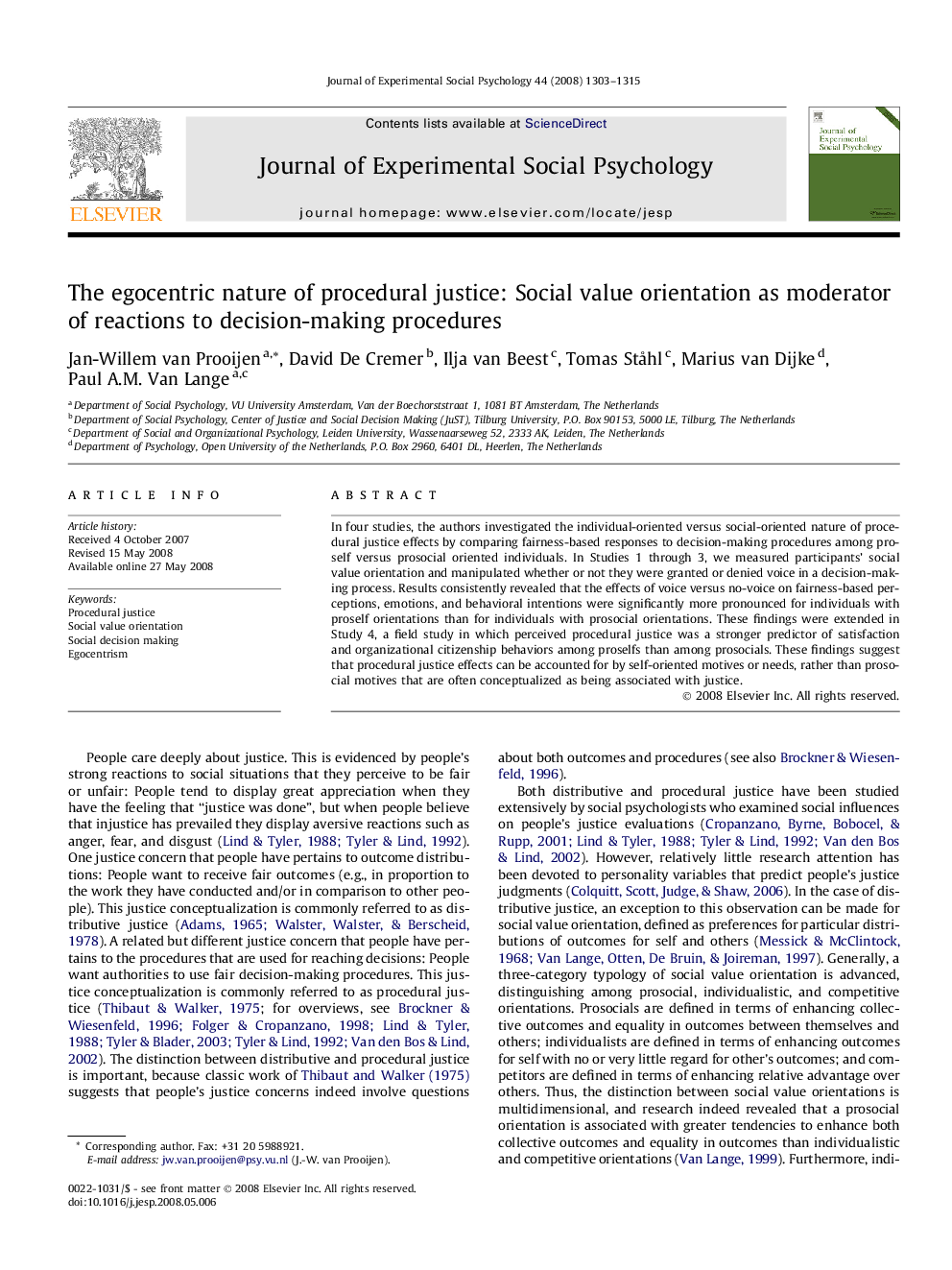| Article ID | Journal | Published Year | Pages | File Type |
|---|---|---|---|---|
| 947947 | Journal of Experimental Social Psychology | 2008 | 13 Pages |
In four studies, the authors investigated the individual-oriented versus social-oriented nature of procedural justice effects by comparing fairness-based responses to decision-making procedures among proself versus prosocial oriented individuals. In Studies 1 through 3, we measured participants’ social value orientation and manipulated whether or not they were granted or denied voice in a decision-making process. Results consistently revealed that the effects of voice versus no-voice on fairness-based perceptions, emotions, and behavioral intentions were significantly more pronounced for individuals with proself orientations than for individuals with prosocial orientations. These findings were extended in Study 4, a field study in which perceived procedural justice was a stronger predictor of satisfaction and organizational citizenship behaviors among proselfs than among prosocials. These findings suggest that procedural justice effects can be accounted for by self-oriented motives or needs, rather than prosocial motives that are often conceptualized as being associated with justice.
